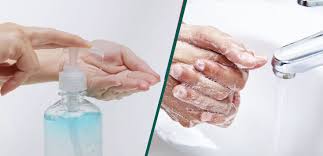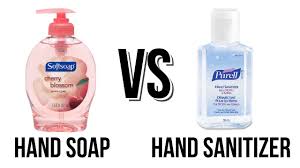
Hand sanitizer is not a substitute for hand washing.
Get the Facts: Hand Washing & Hand Sanitizer VS Covid-19
Hand Washing and Hand Sanitizer is believed be the most effective was to fight of infection from Covid-19.
With Covid-19 cases rising not just in Utah, but all around the nation, washing your hands and using hand sanitizer is vital in slowing the spread of the virus.
Why do hand sanitizers smell so bad these days?
Hand sanitizers aren’t the lovely Bath And Body Works scents anymore; they are smelly and very strong. This is because most hand sanitizers are used in school and many other places and people need to have clean hands. This means the sanitizer has 60% or more alcohol in it, which makes it smell pretty awful. This alcohol, referred to as ethanol or ethyl alcohol has a very powerful and distinct smell that cannot be easily masked by essential oils or other fragrances.
How does scents or fragrance impact soaps and sanitizers?
Fragrance can mask the smell of the alcohol. Adding some essential oil or other fragrance can make putting on hand sanitizer and soaps more enjoyable and sometimes fun! But, the real question is can the fragrance hurt you?
No, but to a certain extent…
Hand sanitizers that have too much fragrance may be loaded with toxic chemicals like phthalates and parabens. These can cause birth and human body development defects. Fragrance in soap can trigger allergic reactions and have some negative effects on skin and body health.
Hand Sanitizer VS Hand Washing:

While both are very important, which one can prevent germs from spreading? The CDC recommends washing hands whenever possible for 20 seconds of more with soap and water. But, when there isn’t time to stop and wash hands, hand sanitizer with 60% or more cleaning alcohol is a great option. However, it doesn’t get rid of ALL of the germs, metals, grease, or pesticides.
Hand washing is more effective. It is more effective because hand sanitizers may not get dirt or grease, along with germs like Cryptosporidium, Norovirus, and C. Diff. When possible your wash hands with soap and warm water to keep yourself clean, happy, and most importantly healthy.
Most of the population does not practice correct hand washing. The CDC recommends this tactic, “1. Wet your hands with clean, running water (warm or cold), turn off the tap, and apply soap. 2.Lather your hands by rubbing them together with the soap. Lather the backs of your hands, between your fingers, and under your nails. 3. Scrub your hands for at least 20 seconds. Need a timer? Hum the “Happy Birthday” song from beginning to end twice.4. Rinse your hands well under clean, running water. 5. Dry your hands using a clean towel or air dry them.”
The World Health Organization (WHO) posted a video on how everyone should be washing their hands.
Also, people are not washing their hands enough. You should be washing your hands…
- Before, during, and after preparing food
- Before and after eating food
- Before and after caring for someone at home who is sick with vomiting or diarrhea
- Before and after treating a cut or wound
- After using the toilet
- After changing diapers or cleaning up a child who has used the toilet
- After blowing your nose, coughing, or sneezing
- After touching an animal, animal feed, or animal waste
- After handling pet food or pet treats
- After touching garbage
How Soap Works
Covid-19 is a type of virus that’s outer surface is made of a lipid bi-layer. These lipids are pin shaped molecules that’s heads are attracted to water, but tails are repelled by it. So, in water rich environments the surface becomes a more protective layer, making it attracted to the water (the hydrophobic effect), this helps the virus break the cell membrane and hijack the cell. Soap has a molecule called amphiphiles, which are somewhat similar to lipids. These molecules fight with the lipids for space on the virus membrane, separating the lipids apart from each other, making the whole membrane fall apart. Then the amphiphiles form their own bubbles around the broken virus and the bubble is washed away when water is added. An analogy is that soap is a crowbar, forcing the virus to break and split apart.
How Hand-Sanitizer Works
Using a similar analogy, hand-sanitizer is like an earthquake. The alcohol makes the hydrophobic effect (explained in the How Soap Works section) disappear, allowing the molecules to move around. The cell membrane collapses, making the proteins that allow the virus to infect people crumble.
What makes Hand sanitizers and Soaps are most effective?
Hand Sanitizers
Look for hand sanitizers with 60% or more ethanol alcohols. The alcohol kills bacteria and viruses. Also look for sanitizers with essential oils instead of other fragrance. Some fragrances are super harmful if there’s a lot in use. Find out if an allergic reaction will happen if in use
Soaps
On a molecular level, soap breaks dirt and other things down. Soap is the most effective defensive against invisible, harmful microorganisms. Soap is a fatty acid of salt. Soaps are used as cleansers and lubricants. Soap cleans by acting as a surfactant and emulsifier. It can surround oil, making it easier to rinse it away with water. However, prolonged use of soap depletes the oil production capacity of your skin so your skin loses the glow and beauty.
